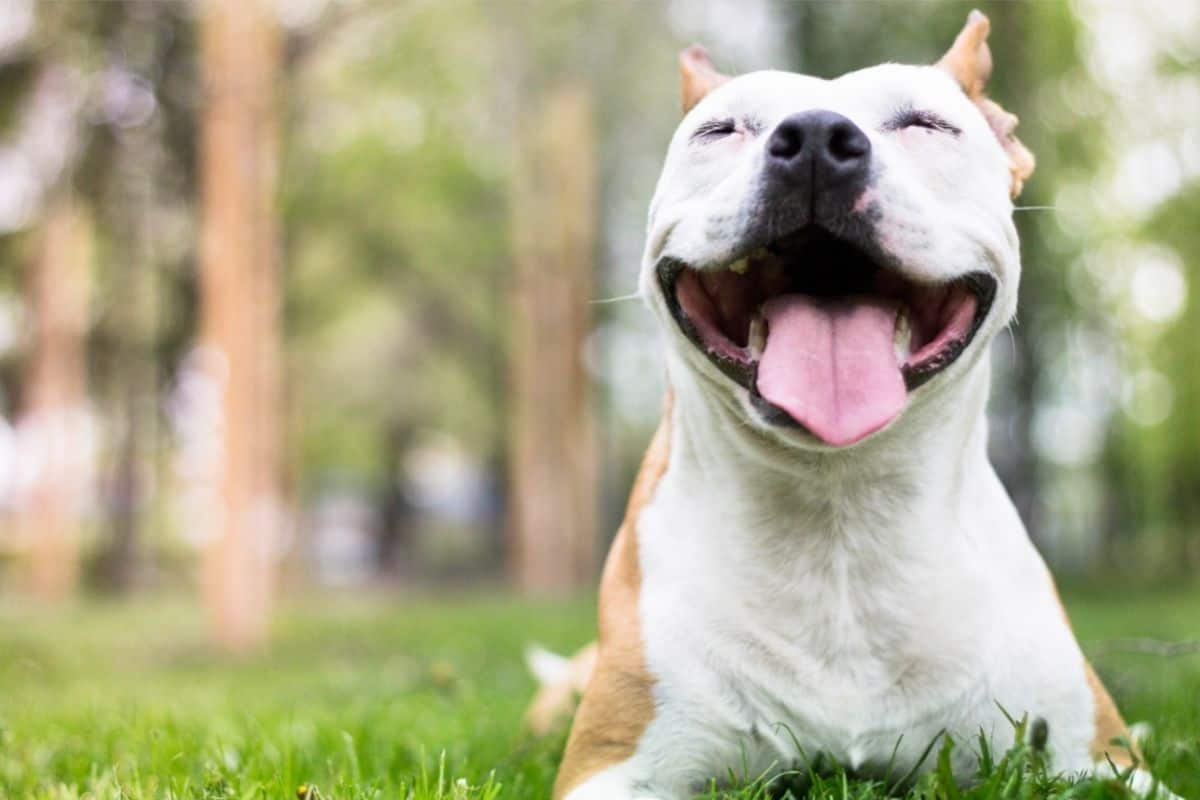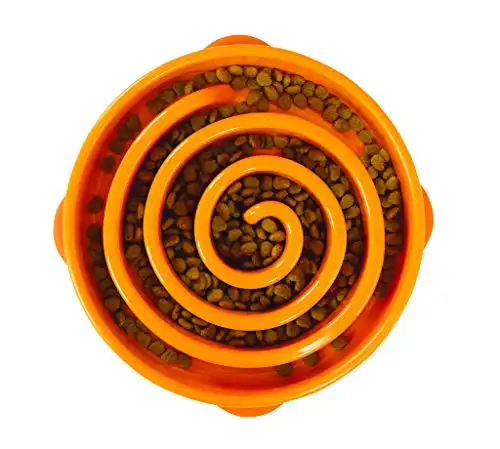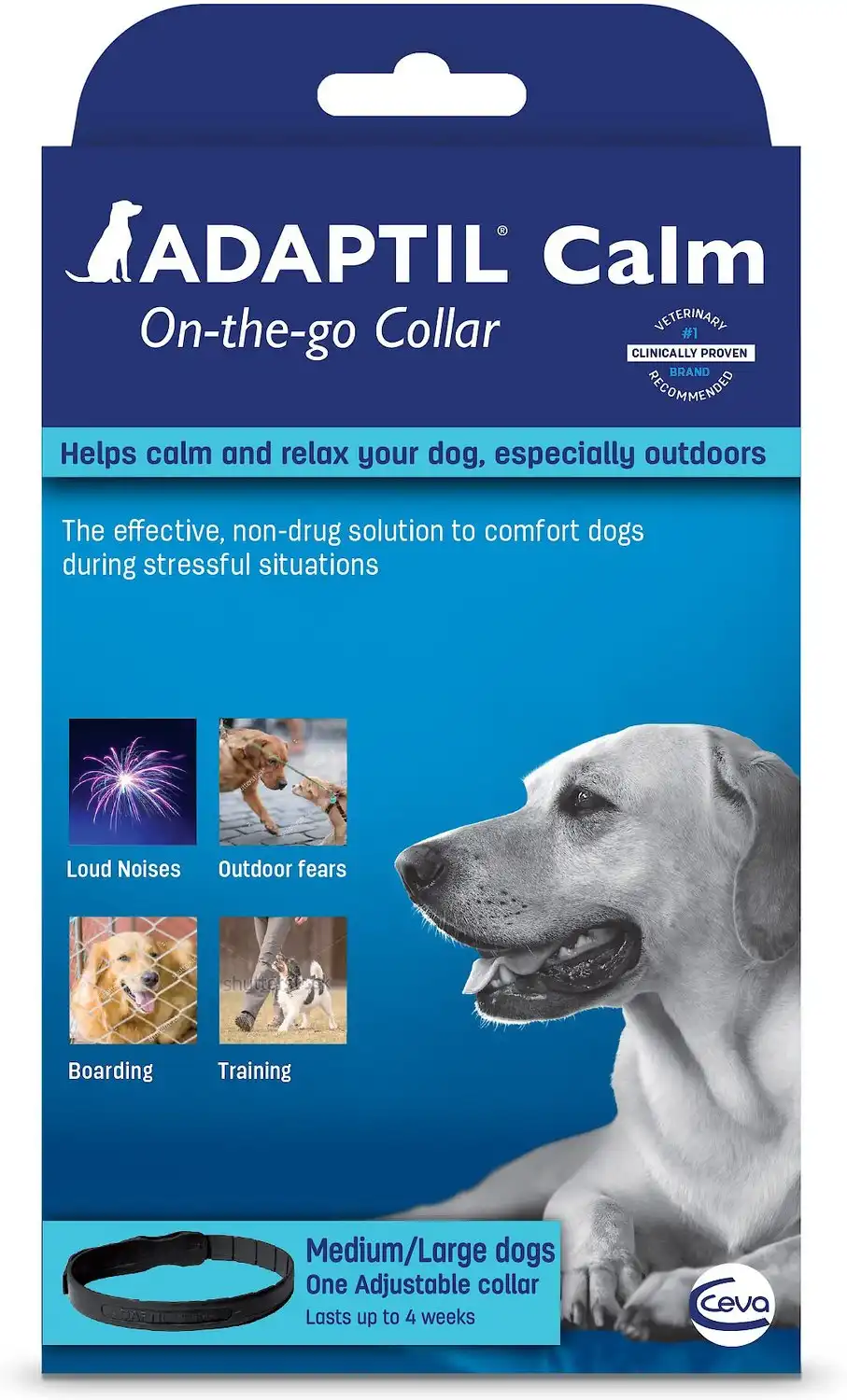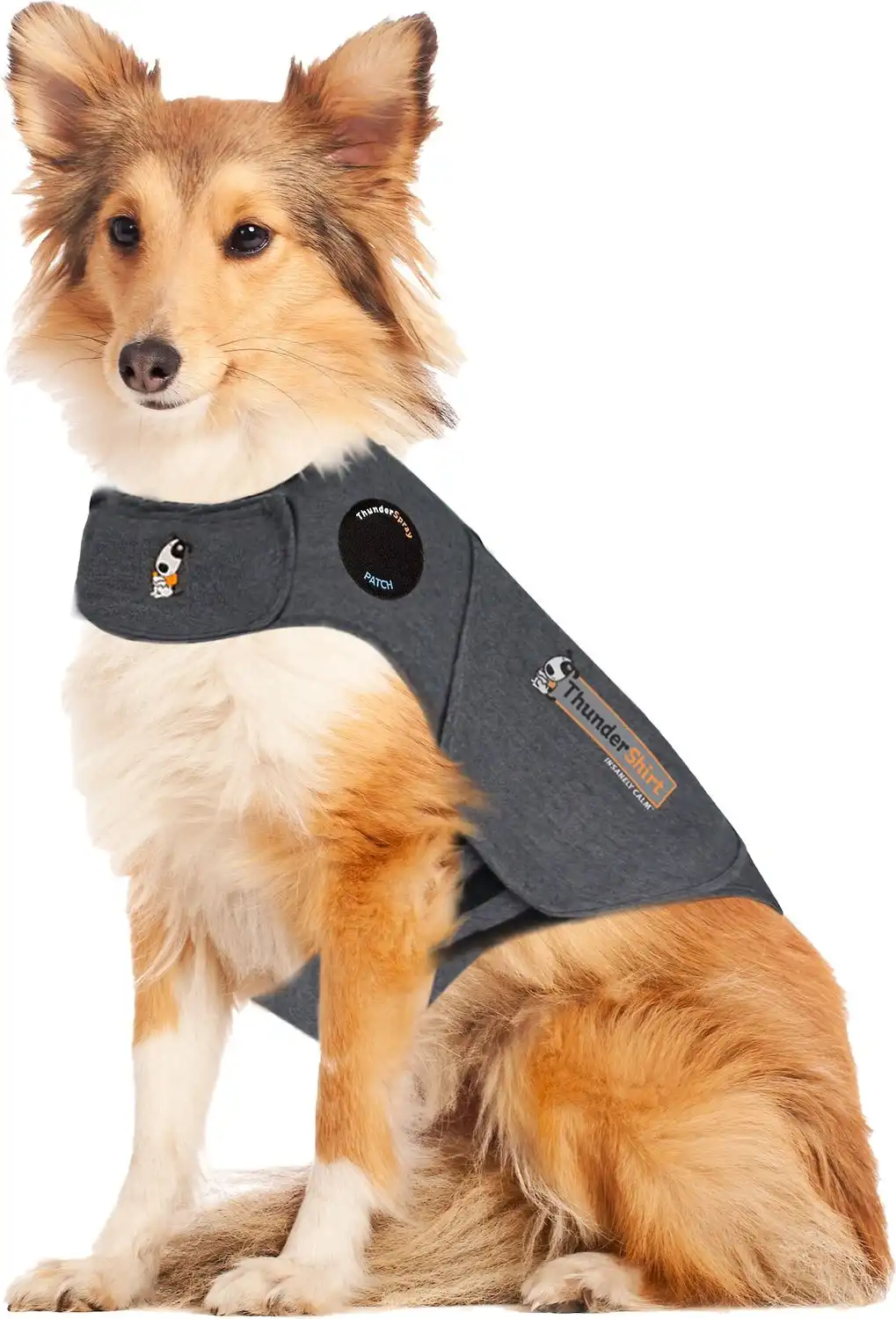
This post contains affiliate links and I will be compensated if you make a purchase after clicking on my links.
We all know how frustrating it can be when you develop a case of hiccups that you just can’t seem to get rid of. You have tried holding your breath, bending over, thinking of something else, and having a friend yell “boo” at you, all to no avail!
Most cases of hiccups will only last a few minutes and go away on their own, but what if they last much longer? What if you just couldn’t get rid of them, and they lasted not minutes but days?
Humans are not the only ones that will experience hiccups. Our dogs can get them, too!
Many times, hiccups will quickly go away. While they can be annoying for you and your dog, many times, these are not serious.
If they do continue, it would be best to see your vet to make sure that there are no underlying medical issues with your dog causing them to hiccup.
Table of Contents
What are hiccups?
Hiccups are caused by a small spasm of the diaphragm, the muscle that separates the chest from the abdomen and plays an important role in breathing, followed quickly by a quick closure of their vocal cords, which produces the characteristic sound of a hiccup.
This contraction or myoclonic jerk from the diaphragm may repeat several times per minute and might last seconds or, in rare cases, days. The contractions of the diaphragm are involuntary or uncontrolled movements.
Hiccups in your dog are thought to be caused by a dog swallowing too much air.
This can happen when a dog eats or drinks too quickly or by eating too much at one time. Experiencing stressful events, including fear or excitement, can lead to hiccups.
Many times, hiccups in dogs are perfectly normal and will quickly resolve themselves on their own in just a few minutes.
However, if your dog’s hiccups start to last for a few hours and begin to affect their quality of life, you should consider taking your fur baby to the vet.
Do puppies get hiccups more than adults?
It is thought that Puppies are much more susceptible to hiccups than adult dogs.
These are some reasons why!
- They are intaking more air: Puppies have an inclination to ingest more air due to their greater levels of exertion and excitement.
- Weaker Muscles: Another possibility is that your puppy’s muscles are weaker, and their body is not fully matured. This makes them more prone to muscle contractions.
It is normal for a puppy to hiccup, even daily, as long as the hiccupping only lasts for a few minutes and is not coupled with drooling, lethargy, coughing, wheezing, hard swallowing, signs of distress.
8 Ways to get rid of your dog’s Hiccups
These are a few at-home tips that you can try to help get rid of hiccups in your dog!
1. Make sure they are chewing their food
If eating too fast is the problem, slow them down!
To help a dog stop gorging on his food, get yourself a slow-feeding dog bowl. These come in many different sizes and styles, but all are designed to make the eager pooch work just a little bit harder for dinner.
The added challenge of moving kibble out of their bowl from a maze-like design with peaks and valleys or working around the finger-like projections forces the dog to slow down, thereby ingesting less air along with the food.
If you are working with a tight budget, you might try putting dry kibble inside a closed cardboard box, so your pooch has to work out ways to get the food and will be stimulated at the same time, slowing eating down immensely.
You may also consider using a DIY solution!
Find a large rock (baseball-sized or larger) that you can scrub clean and place in the center of your dog’s dish to slow down the eating or drinking.
Only try this method if your dog will not take the rock out and play with it, as rocks can damage a dog’s teeth.
2. Change their diet
Some dogs have sensitive stomachs, and certain foods may increase your dog’s tendency to hiccup.
If your dog hiccups only happen right after meals, try changing up the diet to see if that makes a difference.
3. Decrease Environmental Stimulants
Decrease your dog’s exposure to environmental irritants such as heavily fragranced air fresheners, strong cleaning products, chemical fumes, and cigarette smoke.
Not only can these lead to dog hiccups, but they can also seriously damage your pet’s respiratory system and overall health.
4. Make Sure they are Drinking Water
Just like with people, drinking water can assist with hiccups!
Just make sure that your dog drinks it calmly and slowly.
5. Make sure that your dog remains calm
Calming agents like Adaptil may help soothe the many stresses and fears your dog might experience. Your dog’s mother will communicate with their puppies through natural messages that they release into the air.
These comforting messages are called Dog Appeasing Pheromones. These odorless messages are only perceived by dogs.
The pheromones provide a strong signal of security and comfort to dogs of all ages. However, cats and people are not affected by them.
6. Help your dog relax
Get your favorite pup into a quiet location and help them relax by speaking soothingly and petting them. A gentle massage can be advantageous to help Fido relax and bring a halt to the hiccups.
Stroke your pet by making the movements long and flowing. Do not stroke against the grain of the hair growth. That’s the equivalent of having your hair pulled!
A little time out with physical contact and music therapy never hurt anyone. In addition, there are many brands of calming shirts, like the Thunder Shirt, that can help your tail-wagger achieve serenity.
7. Provide mental stimulation
Stimulating your dog’s mind by holding an impromptu training session of about 5 – 10 minutes duration may help relieve a tough case of hiccups.
This allows them to take their mind off the problem and concentrate on perfecting a trick!
8. Call in the big guns!
For really tough hiccup cases, a veterinarian may need to be called in to prescribe medication. Chlorpromazine (Thorazine), although used off-label in dogs, is generally considered safe and very effective when your veterinarian prescribes this medication for your dog.
Chlorpromazine can have some side effects in some animals. Serious side effects include coma, agitation, seizures, abnormal heart rhythms, or dangerously low blood pressure.
This short-acting medication should stop working within 24 hours, although effects can be longer in pets with liver or kidney disease. Chlorpromazine should not be given to a dog who has a known hypersensitivity or allergy to this medication.
Before starting any drug regimen, a full CBC and Chemistry blood panel should be run by your veterinarian. Annual or bi-annual blood work is recommended for all dogs.
There are four main wellness tests that your vet may want to do for your dogs:
- Complete blood count (CBC): A CBC will check the red blood cell, white blood cell, and platelet counts. It provides details about the number, size, and shape of the various cell types and identifies the presence of any abnormal cells.
- Biochemistry profile: A biochemistry profile is a panel of tests that provides information about the liver and kidney functions, as well as other organs and tissues of the body. It helps to detect diabetes, kidney disease, liver disease, and other disorders.
- Urinalysis: Urinalysis is part of a complete assessment of the kidneys and urinary system and should be included in routine wellness testing.
A urinalysis will give your vet information about how well your dog’s kidneys are working and help identify any inflammation and infection in their urinary system. This can also help your vet to diagnose diabetes and can be useful in diagnosing many different types of cancer within the urinary system. - Thyroid hormone testing: A thyroid test checks the thyroid gland, which acts as the body’s thermostat and sets the metabolic rate. Dogs are prone to hypothyroidism which occurs when the thyroid gland fails to produce enough thyroid hormone.
Hormone levels should be tested routinely and especially if any weight gain is noticed or your dog becomes more lethargic or develops hair loss of the body or tail.
These tests will help your vet be able to help you determine what the best treatment for your pet will be based on age, lifestyle, and severity of the hiccups.
Talk to your vet if you have any questions or concerns about whether or not your dog needs medication like this.
Discern between hiccups and reverse hiccups/sneezing.
Reverse hiccups are ordinarily caused by irritation to the throat or the sinuses that causes spasms.
The dog takes loud, involuntary breaths to clear the irritation or the sinus passages, and it sounds like the air intake that happens at the beginning of a normal hiccup, sometimes even like a loud honking noise.
You may consider getting your dog’s sinuses evaluated by your veterinary professional to rule out a medical condition, such as:
- Collapsing trachea
- Sinus infection
- Tumor
All of these can be showing signs that you may think are signs of a hiccup when really, there is something more serious going on.
Accept that hiccupping occasionally is normal
For the most part, some hiccupping sessions in dogs are inescapable.
Just keep in mind that the hiccups most likely will eventually run their course without causing any harm to your dog and without any interference on your part or any need to get your veterinarian involved.
Just like humans, dogs, and puppies get hiccups, and these are normal occurrences. However, if you are concerned about your dog’s hiccups, there are things you can try that might lessen their occurrence.
Hiccupping can be exhausting for both you and your pet, but it is a perfectly normal occurrence.




Great danes are a great joy and bring lots of love they need lots of attention but let’s be realistic they can be a huge pain in the butt They are demanding and they can reach anything they want to.
I just don’t want somebody getting one and then giving it away because it is a hugecommitment for life
I have a three-year-old blue-gray Gray Dane a 140 pounds in perfect health very playful the problem is he gets pimples under his chin with with slight blood. They are telling me it’s allergies but they won’t say what kind of allergies or from where.
is this a common issue with great danes he doesn’t seem to be in pain but my fear is open wound leads to infection. He is a house dog who only goes for walks 3× a day. Little interaction with other dogs and porcelain bowl cleaned daily.